Search titles
Displaying results 191 to 200 of 223.

The Changing South Pacific »
Identities and Transformations
Edited by: Serge Tcherkézoff, Françoise Douaire-Marsaudon
Publication date: December 2008
The texts collected in this volume take an anthropological approach to the variety of contemporary societal problems which confront the peoples of the contemporary South Pacific: religious revival, the sociology of relations between local groups, regions and nation-States, the problem of culture areas, the place of democracy in the transition of States founded on sacred chiefdoms, the role of ceremonial exchanges in a market economy, and so forth.
Each chapter presents a society seen from a specific point of view, but always with reference to the issue of collective identity and its confrontation with history and change. The collection thus invites the reader to understand how the inhabitants of these societies seek to affirm both an individual identity and a sense of belonging to the contemporary world. In doing so, it informs the reader about the contemporary realities experienced by the inhabitants of the South Pacific, with a view to contributing to an intercultural dialogue between the reader and these inhabitants.

Dictatorship, Disorder and Decline in Myanmar »
Edited by: Monique Skidmore, Trevor Wilson
Publication date: December 2008
Mass peaceful protests in Myanmar/Burma in 2007 drew the world’s attention to the ongoing problems faced by this country and its oppressed people. In this publication, experts from around the world analyse the reasons for these recent political upheavals, explain how the country’s economy, education and health sectors are in perceptible decline, and identify the underlying authoritarian pressures that characterise Myanmar/Burma’s military regime.

Lak Chang »
A reconstruction of Tai identity in Daikong
Authored by: Yos Santasombat
Publication date: December 2008
The Thai—Yunnan Project is proud to present this English-language version of Professor Yos Santasombat’s fascinating ethnography of the Tai in Daikong, southwestern China. It represents a significant contribution to the ethnographic record of the Tai peoples.
The village of Lak Chang is located close to the edge of the Tai world and is increasingly embraced by Chinese influence. Professor Yos skilfully weaves ethnographic and historical writing to chart the course of Lak Chang’s incorporation into the modern Chinese state. This has been a painful history but what emerges in this account is a sense of Tai cultural identity that is vigorous and adaptive.
“The Tai ethnic category is thus a complex and dynamic construct which takes place within the context of changing power relations and socio-economic conditions where the past is reconstructed to give meaning to the present and hope for the future.”
In his account of the labours, rituals and beliefs of the Tai villagers of Daikong, Professor Yos brings contemporary ethnic identity to their life. Among the patchwork paddyfields and haphazard laneways of Lak Chang we come to a greater understanding of how global and regional processes of modernisation are managed and selectively incorporated by one local community.
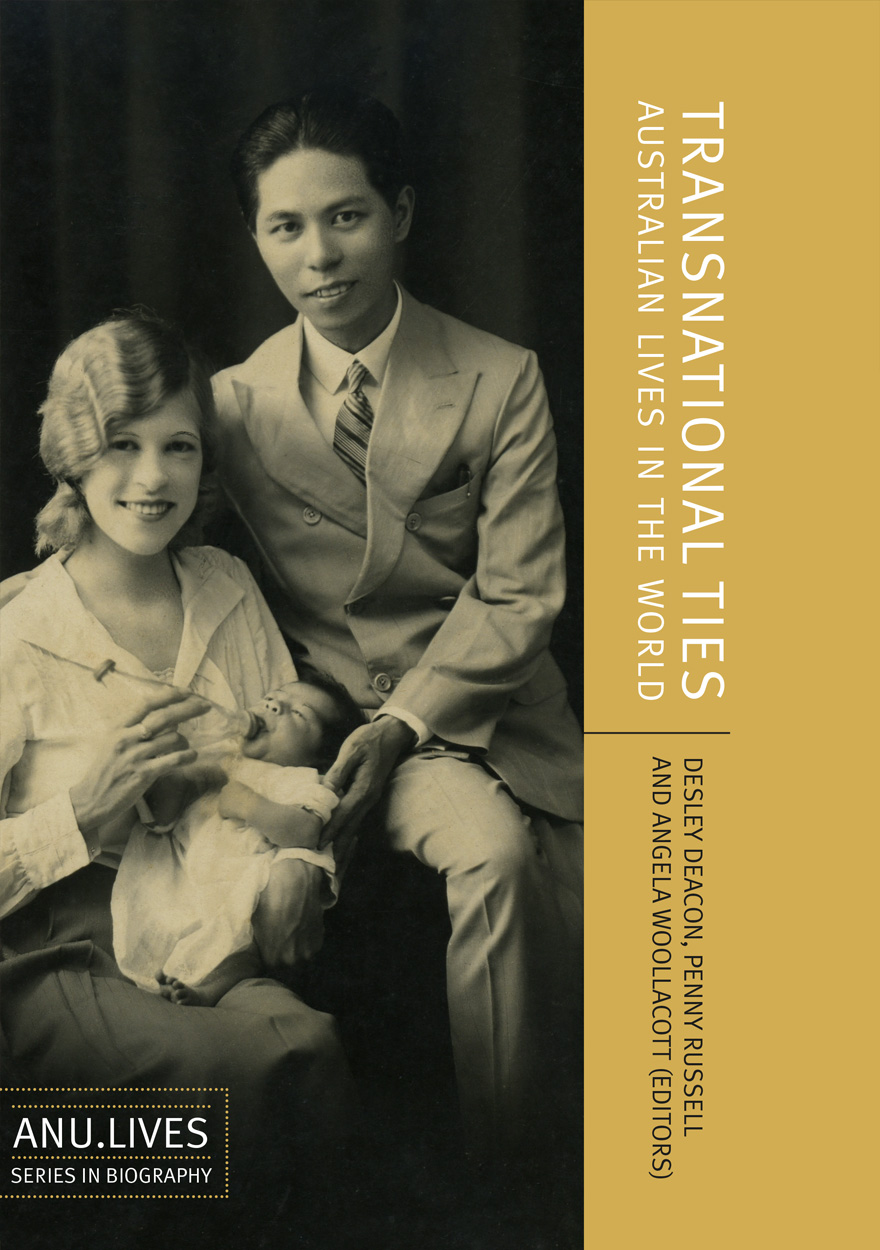
Transnational Ties »
Australian Lives in the World
Edited by: Desley Deacon, Penny Russell, Angela Woollacott
Publication date: December 2008
Australian lives are intricately enmeshed with the world, bound by ties of allegiance and affinity, intellect and imagination. In Transnational Ties: Australian Lives in the World, an eclectic mix of scholars—historians, literary critics, and museologists—trace the flow of people that helped shape Australia’s distinctive character and the flow of ideas that connected Australians to a global community of thought. It shows how biography, and the study of life stories, can contribute greatly to our understanding of such patterns of connection and explores how transnationalism can test biography’s limits as an intellectual, professional and commercial practice.
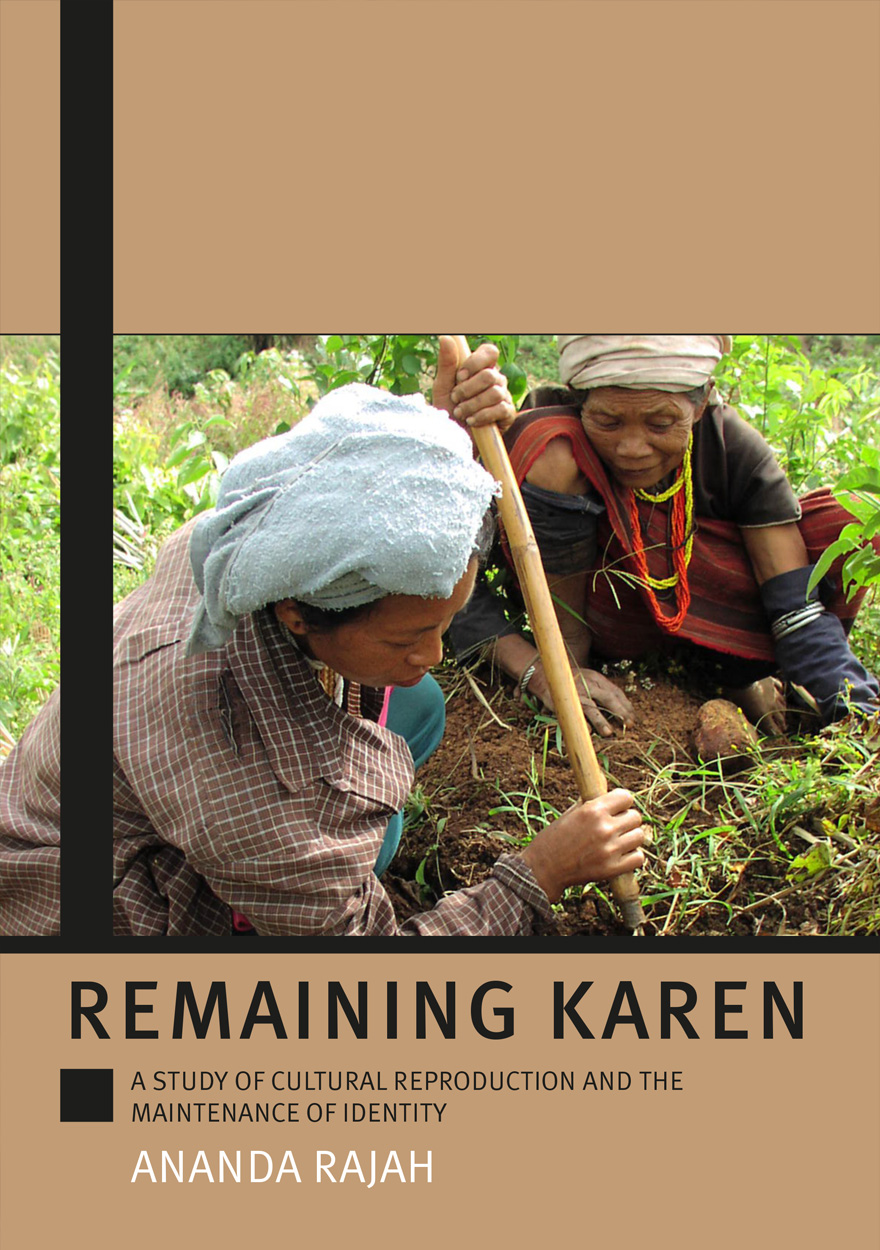
Remaining Karen »
A Study of Cultural Reproduction and the Maintenance of Identity
Authored by: Ananda Rajah
Publication date: November 2008
This publication of Remaining Karen is intended as a tribute to Ananda Rajah and his consummate skills as an ethnographer. It is also a tribute to his long-term engagement in the study of the Karen. Remaining Karen was Ananda Rajah’s first focused study of the Sgaw Karen of Palokhi in northern Thailand, which he submitted in 1986 for this PhD in the Department of Anthropology in the Research School of Pacific and Asian Studies at The Australian National University. It is a work of superlative ethnography set in an historical and regional context and as such retains its value to the present.
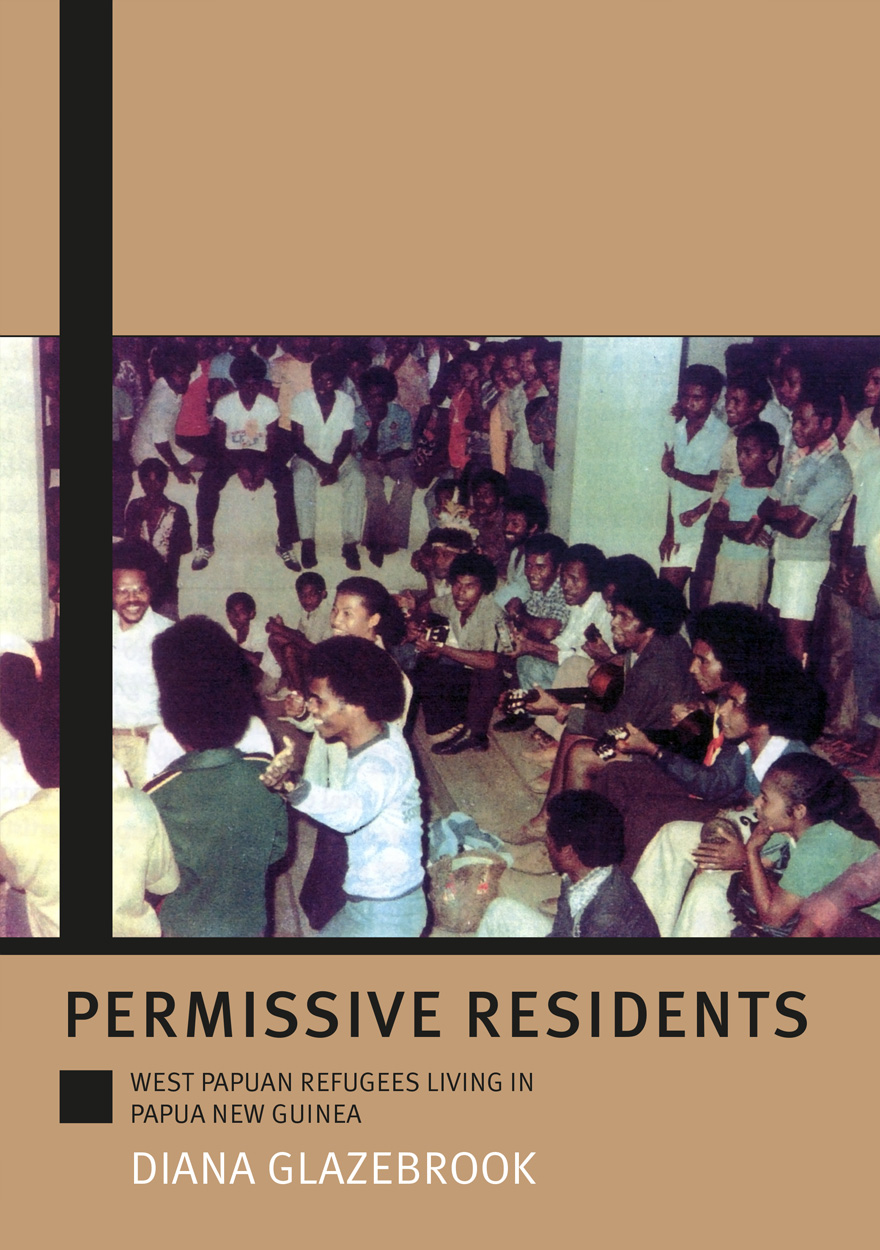
Permissive Residents »
West Papuan refugees living in Papua New Guinea
Authored by: Diana Glazebrook
Publication date: September 2008
This book offers another frame through which to view the event of the outrigger landing of 43 West Papuans in Australia in 2006. West Papuans have crossed boundaries to seek asylum since 1962, usually eastward into Papua New Guinea (PNG), and occasionally southward to Australia. Between 1984–86, around 11,000 people crossed into PNG seeking asylum. After the Government of PNG acceded to the United Nations Convention and Protocol Relating to the Status of Refugees, West Papuans were relocated from informal camps on the international border to a single inland location called East Awin. This volume provides an ethnography of that settlement based on the author’s fieldwork carried out in 1998–99.
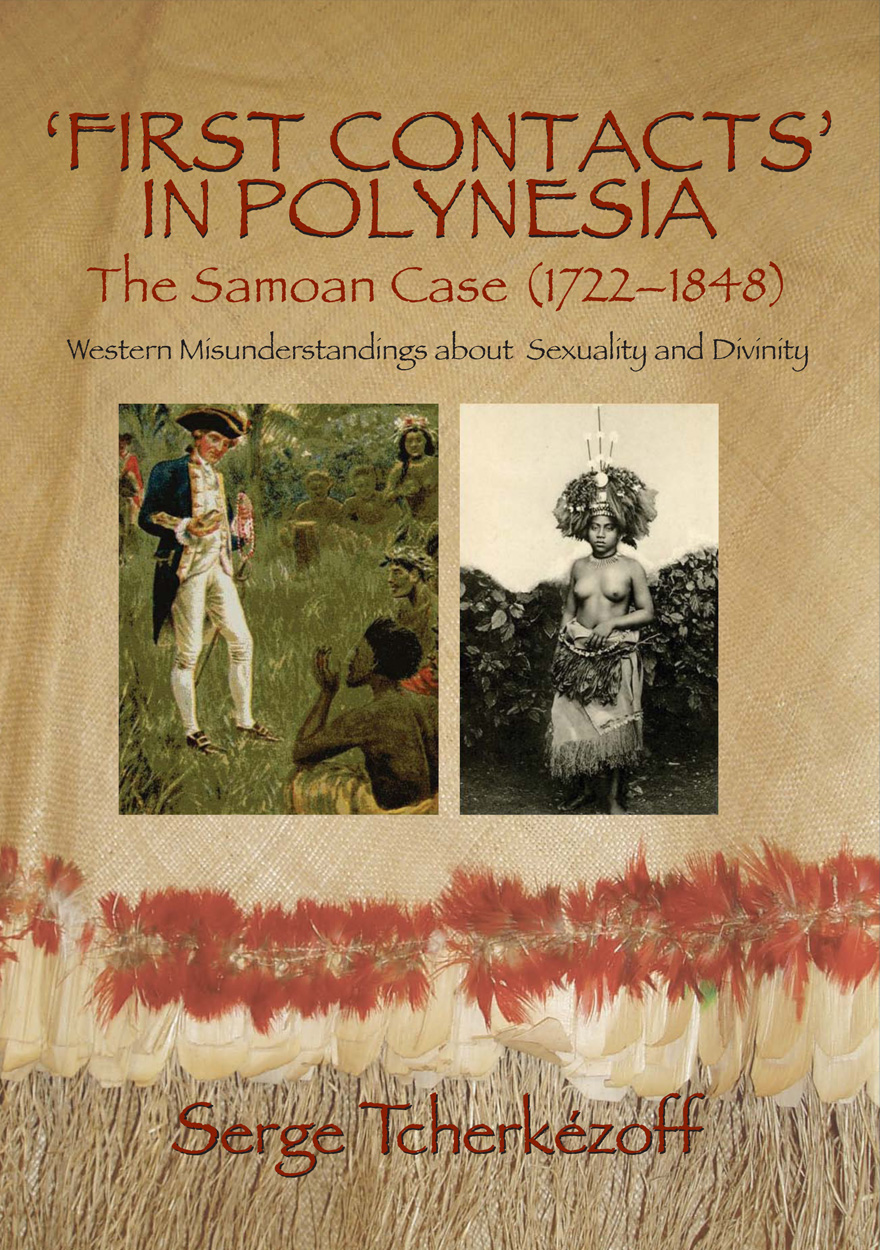
First Contacts in Polynesia »
The Samoan Case (1722–1848) Western Misunderstandings about Sexuality and Divinity
Authored by: Serge Tcherkézoff
Publication date: August 2008
This book explores the first encounters between Samoans and Europeans up to the arrival of the missionaries, using all available sources for the years 1722 to the 1830s, paying special attention to the first encounter on land with the Lapérouse expedition. Many of the sources used are French, and some of difficult accessibility, and thus they have not previously been thoroughly examined by historians. Adding some Polynesian comparisons from beyond Samoa, and reconsidering the so-called ‘Sahlins-Obeyesekere debate’ about the fate of Captain Cook, ‘First Contacts’ in Polynesia advances a hypothesis about the contemporary interpretations made by the Polynesians of the nature of the Europeans, and about the actions that the Polynesians devised for this encounter: wrapping Europeans up in ‘cloth’ and presenting ‘young girls’ for ‘sexual contact’. It also discusses how we can go back two centuries and attempt to reconstitute, even if only partially, the point of view of those who had to discover for themselves these Europeans whom they call ‘Papalagi’. The book also contributes an additional dimension to the much-touted ‘Mead-Freeman debate’ which bears on the rules and values regulating adolescent sexuality in ‘Samoan culture’. Scholars have long considered the pre-missionary times as a period in which freedom in sexuality for adolescents predominated. It appears now that this erroneous view emerged from a deep misinterpretation of Lapérouse’s and Dumont d’Urville’s narratives.
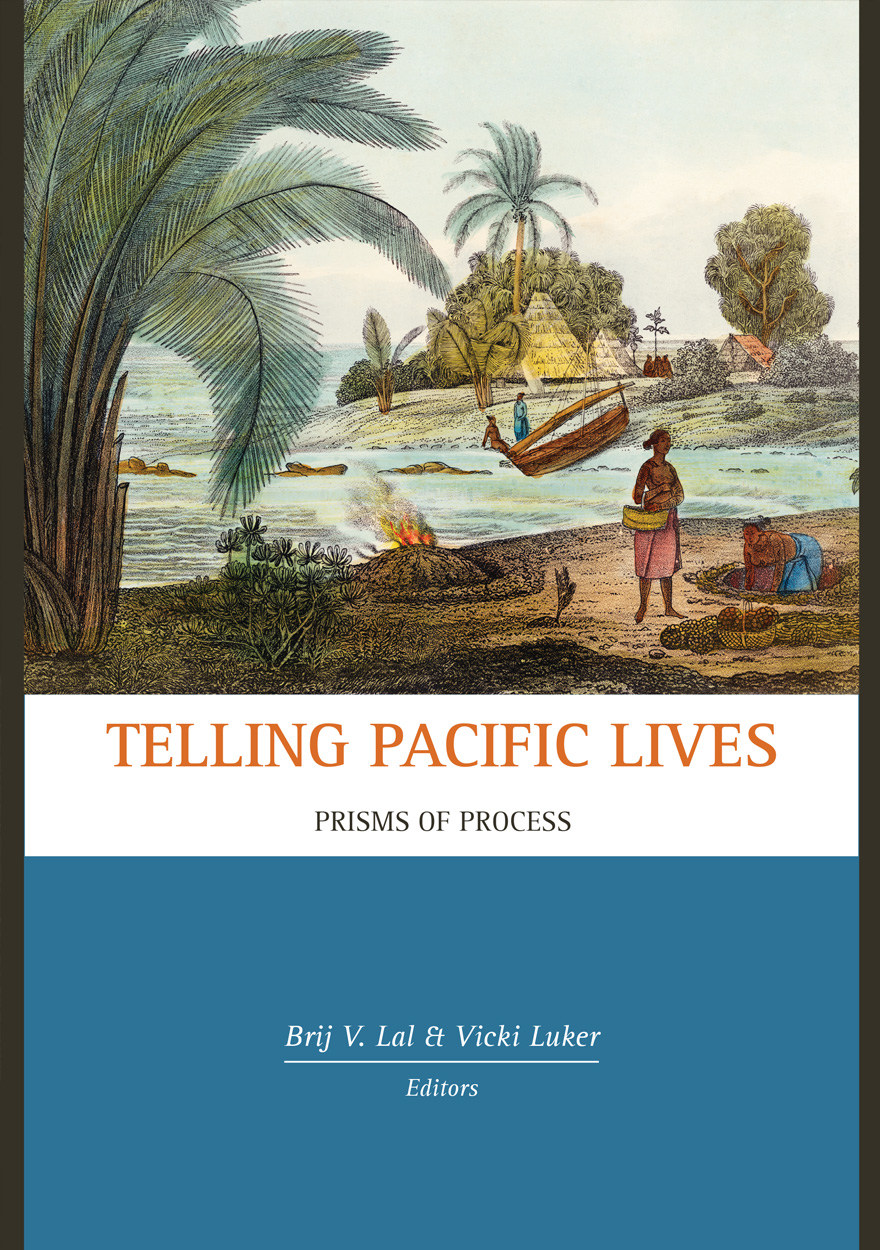
Telling Pacific Lives »
Prisms of Process
Edited by: Brij V. Lal, Vicki Luker
Publication date: June 2008
How are Pacific lives imagined, written and read? How are they refracted through prisms of process? From legends about culture heroes to biographies of national leaders, from tales of ancestors to stories of contemporary men and women, from lives told of both the famous and the nameless, this collection of essays — by historians and anthropologists, Islanders and Island scholars — probes questions of personhood, identity, memory, and time across the sweep of the Pacific, as well as practical issues of research and writing.
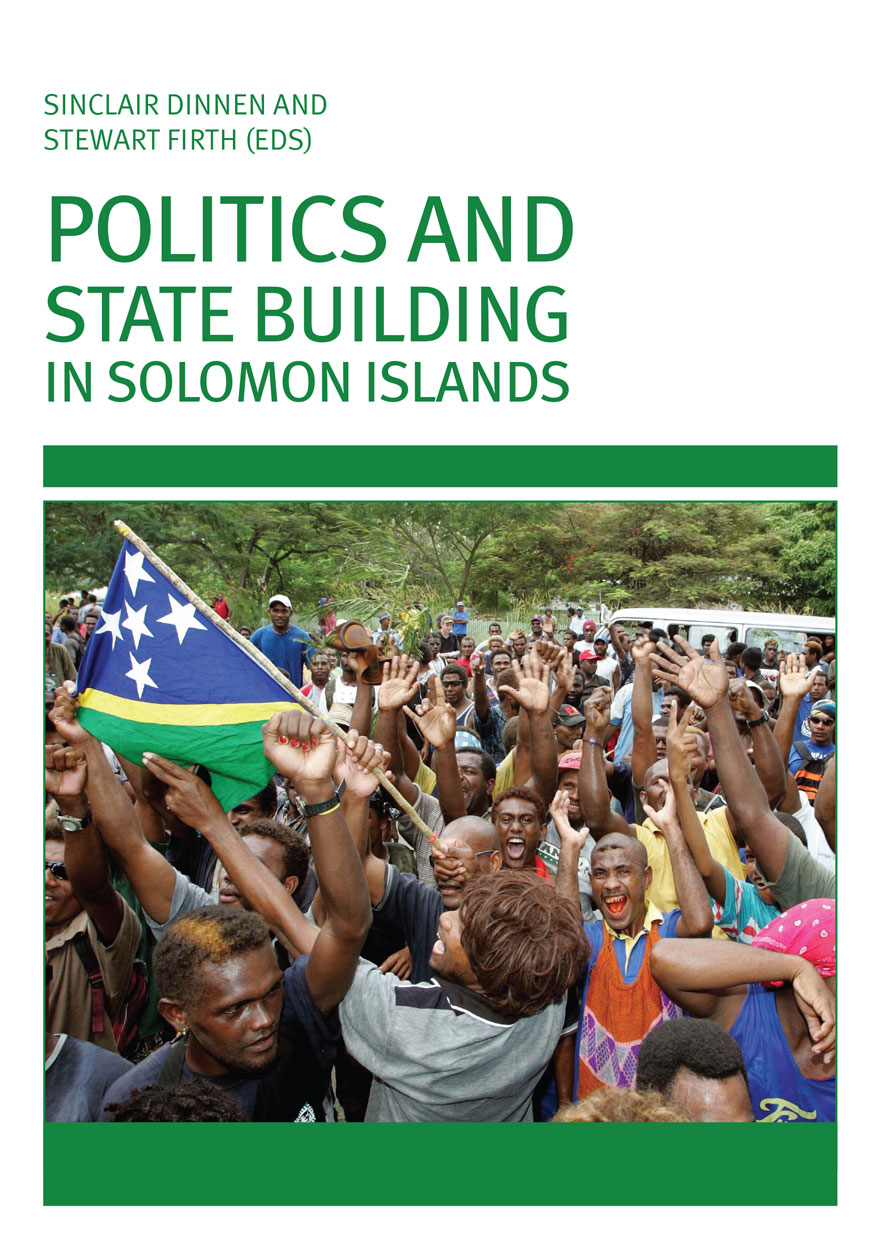
Politics and State Building in Solomon Islands »
Edited by: Sinclair Dinnen, Stewart Firth
Publication date: May 2008
Politics and State Building in Solomon Islands examines a crisis moment in recent Solomon Islands history. Contributors examine what happened when unrest engulfed the capital of the small Melanesian country in the aftermath of the 2006 national elections, and consider what these events show about the Solomon Islands political system, the influence of Asian interests in business and politics, and why the crisis is best understood in the context of the country’s volatile blend of traditional and modern politics.
Until the disturbances of April 2006 and subsequent deterioration in bilateral relations between Australia and Solomon Islands under the Sogavare government, experts had hailed the Regional Assistance Mission to Solomon Islands (RAMSI) as an unqualified success. Some saw it as a model for ‘cooperative intervention’ in ‘failing states’ worldwide. Following these developments success seems less certain and aspects of the RAMSI model appear flawed.
Using the case of Solomon Islands, this book raises fundamental questions about the nature of ‘cooperative intervention’ as a vehicle for state building, asking whether it should be construed as a mainly technical endeavour or whether it is unavoidably a political undertaking with political consequences. Providing a critical but balanced analysis, Politics and State Building in Solomon Islands has important implications for the wider debate about international state-building interventions in ‘failed’ and ‘failing’ states.

Conflict and Resource Development in the Southern Highlands of Papua New Guinea »
Edited by: Nicole Haley, R.J. May
Publication date: November 2007
The Southern Highlands is one of Papua New Guinea’s most resource-rich provinces, but for a number of years the province has been riven by conflict. Longstanding inter-group rivalries, briefly set aside during the colonial period, have been compounded by competition for the benefits provided by the modern state and by fighting over the distribution of returns from the several big mining and petroleum projects located within the province or impinging upon it. Deaths from the various conflicts over the past decade number in the hundreds. As a result of inter-group fighting, criminal activity and vandalism, a number of businesses have withdrawn from the province. Roadblocks and ambushes have made travel dangerous in many parts and expatriate missionaries and aid workers have left. Many public servants have abandoned their posts with the result that state services are not provided. Corruption is rife. Police are often reluctant to act because they are outnumbered and outgunned.
This volume brings together a number of authors with deep experience of the Southern Highlands to examine the underlying dynamics of resource development and conflict in the province. Its primary purpose is to provide some background to recent events, but the authors also explore possible approaches to limiting the human and economic costs of the ongoing conflict and breakdown of governance.



